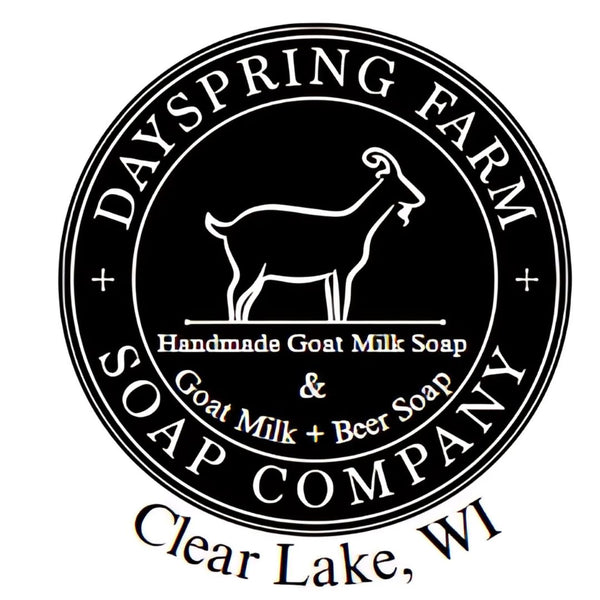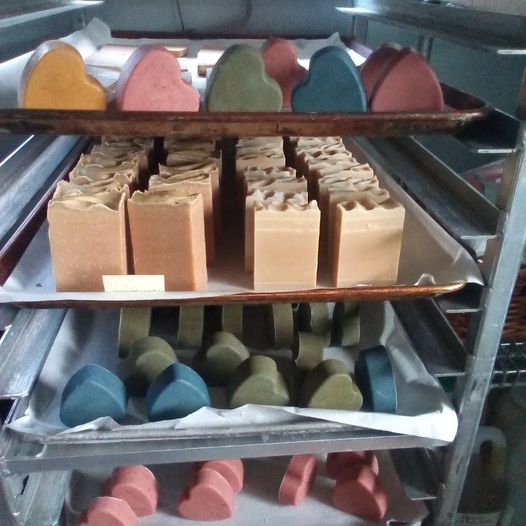What's the difference between "homemade" soap and "artisan handmade" soap?
I think of it as the difference between homemade baked goods and goods made by a professional artisan baker. A home baker can make high-quality food, following recipes and building skill through experience. A professional baker harnesses the power of education along with experience, to intentionally craft baked goods that may be a cut above homemade cookies. A home baker knows that adding too much flour makes bread tough and dry. A professional baker knows that, and also knows adding ascorbic acid (vitamin C) conditions dough to be deliciously soft and elastic, making a dream loaf that leaves us wondering "how'd she do that?" An artisan baker holds onto the beauty of small-batch production, with room for intention and care that are lost in mass-produced goods, while adding skill and knowledge that are built by working at a professional level.
When I first began making soap I'd have considered it "homemade" soap. I followed a recipe and made it in my kitchen and it felt sort of like baking cookies but with more...uhhh...aggressive...ingredients. After all, chemically speaking, lye is a cousin of table salt and baking soda, but you definitely don't want it in your brownies and you won't store it next to the cinnamon in your cupboard.
When I started to make more sophisticated recipes and then became educated about different ingredients and their effects in soap, however, I began to enter the artisan realm. Like baking, soap making is a science as well as an art. You can make a batch of soap that has glorious lather and feels divine in your hands by accident. You can also learn all about fatty acid profiles - then you know if you want copious lather, you reach for ricinoleic acid (the fatty acid found in castor oil). If you want a bar that has beautiful slip in your hands, add clay or be intentional about gel phase (letting the soap reach a critical temperature during the saponification process, which changes many qualities, including final texture). If you want a hard, long-lasting bar (who doesn't want the good value of a long-lasting bar?) pay close attention to myristic, palmitic, and lauric fatty acids.
Home bakers and home soap makers apply a love and intention to their craft that big manufacturers lose with mass-produced soaps. Artisan soap makers hang onto the love, the intention, and the bespoke nature of their craft, while adding knowledge, experience and skill built by producing at a professional level. That is what makes artisan handmade soap such a special treat to use.
At Dayspring Farm, we use our knowledge, skill and experience to produce small batches of carefully-crafted goat milk soap. We've constructed our own recipes to use simple, healthy ingredients, making soap that doesn't strip your skin's natural moisture. We chose ingredients that can even add back and lock in moisture, nourish with vitamins and fatty acids that support skin health. We think the best part is that we use every one of our products on our own skin every day - tender young skin (our youngest is two) and ageing skin that needs a little extra fortifying. We speak from experience when we say if your skin feels good, you feel good. And we want you to feel as good as we do.

